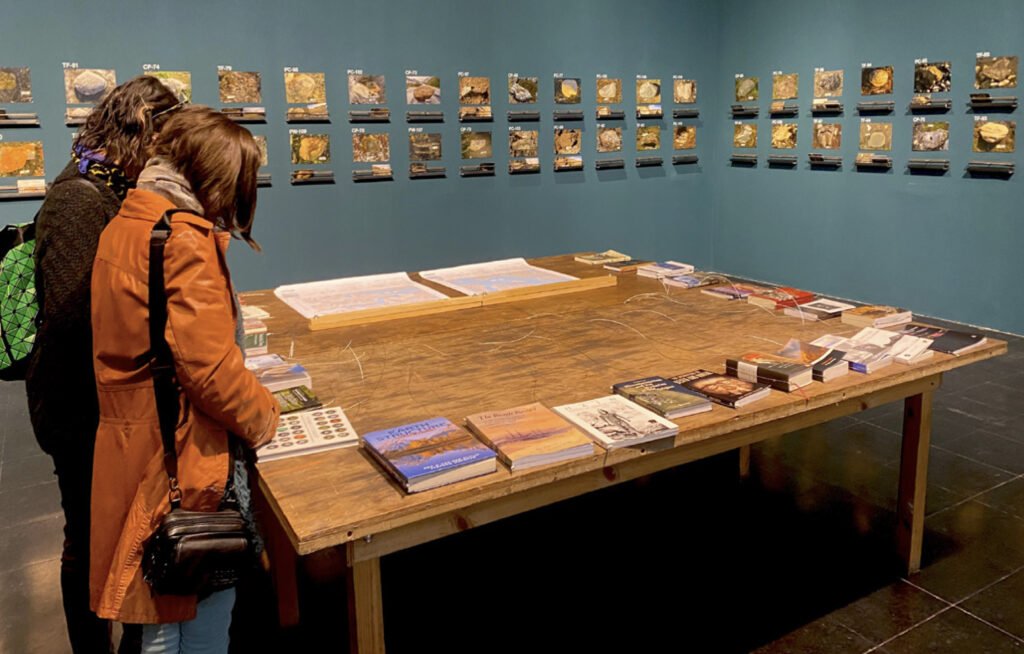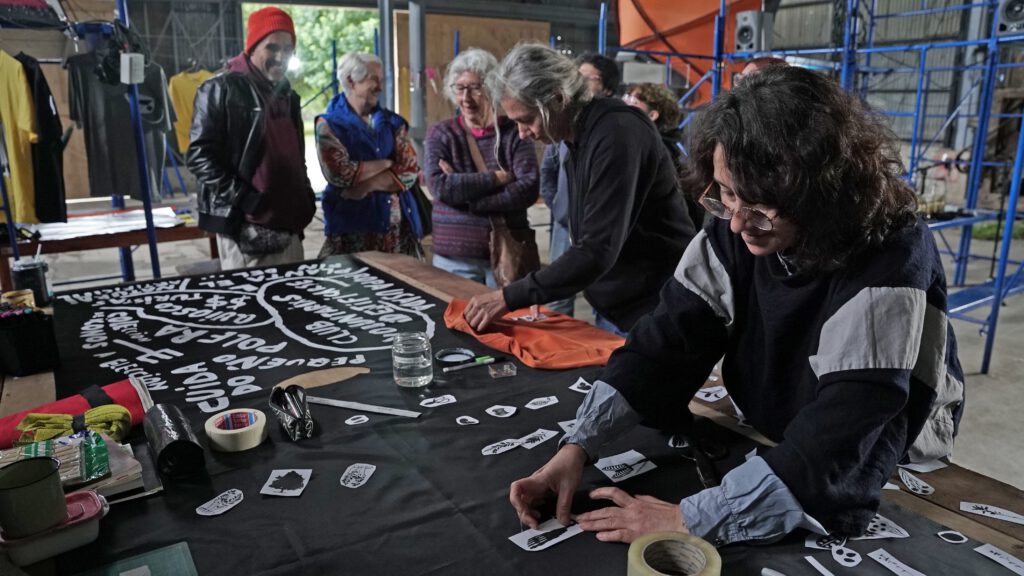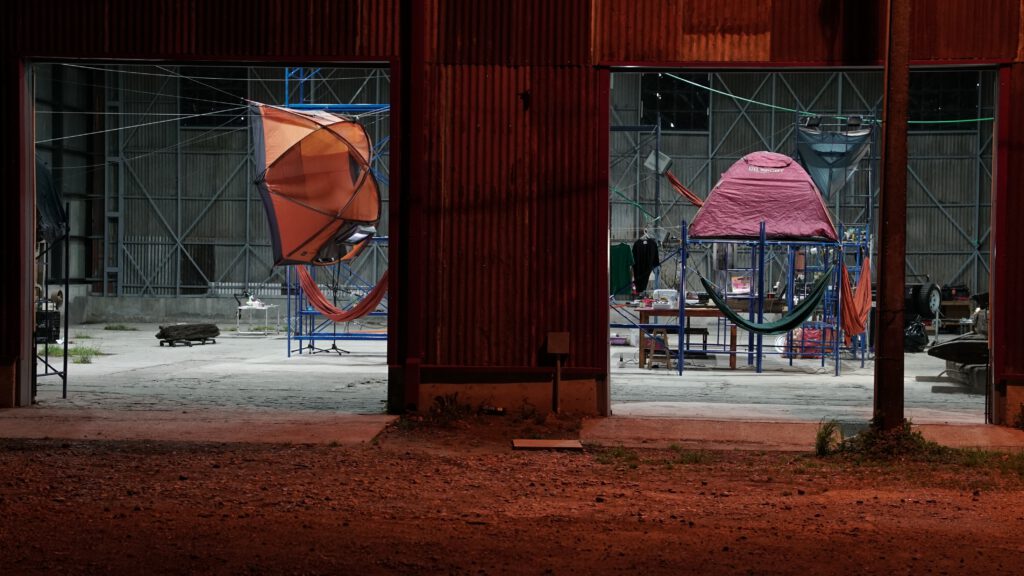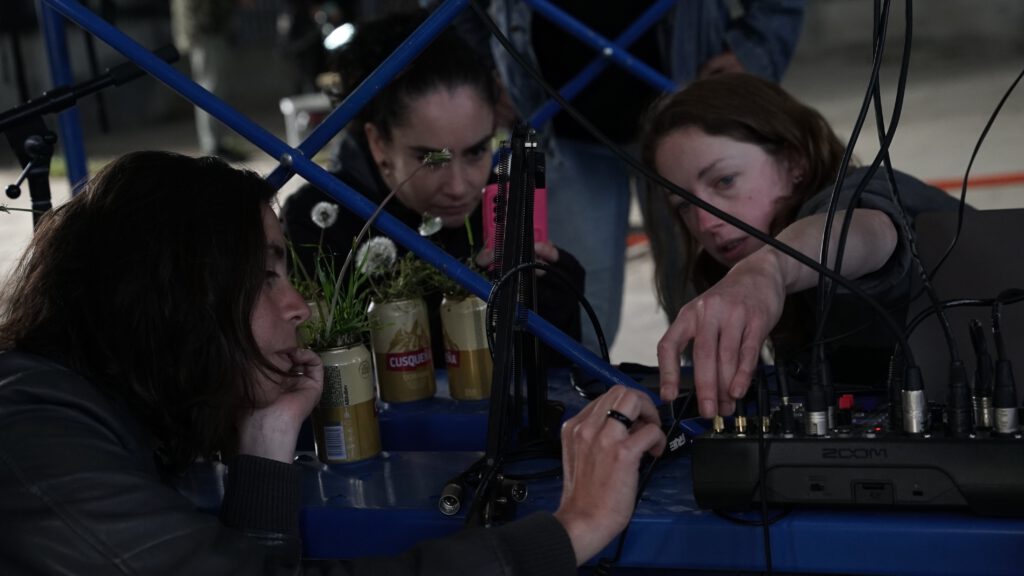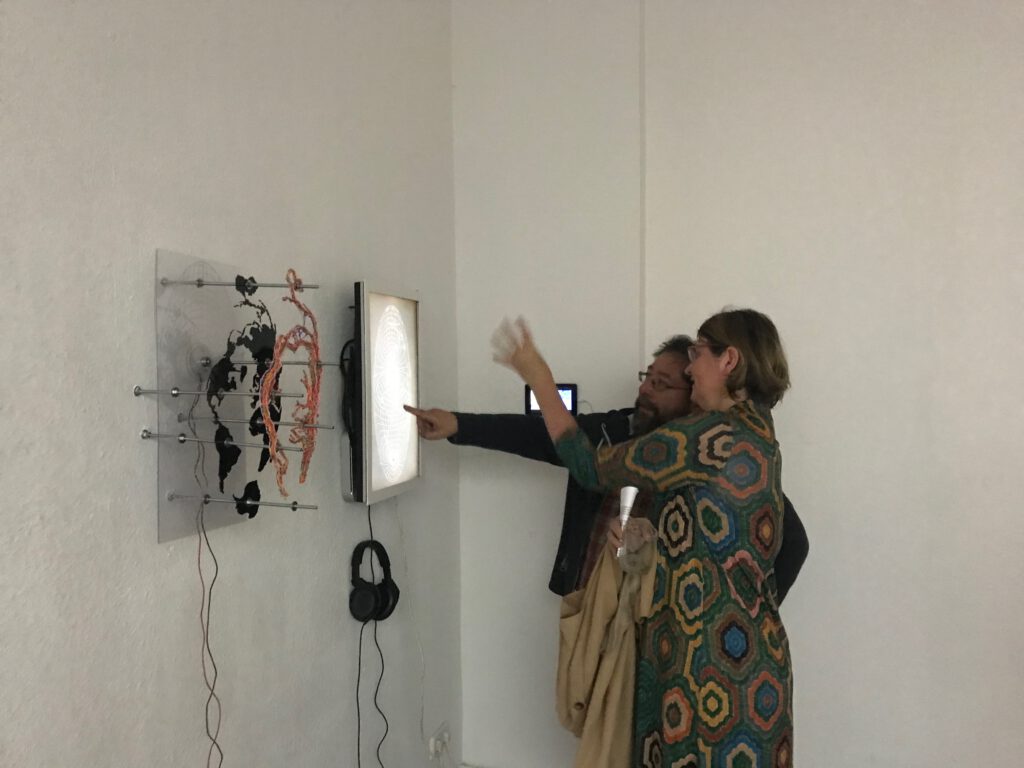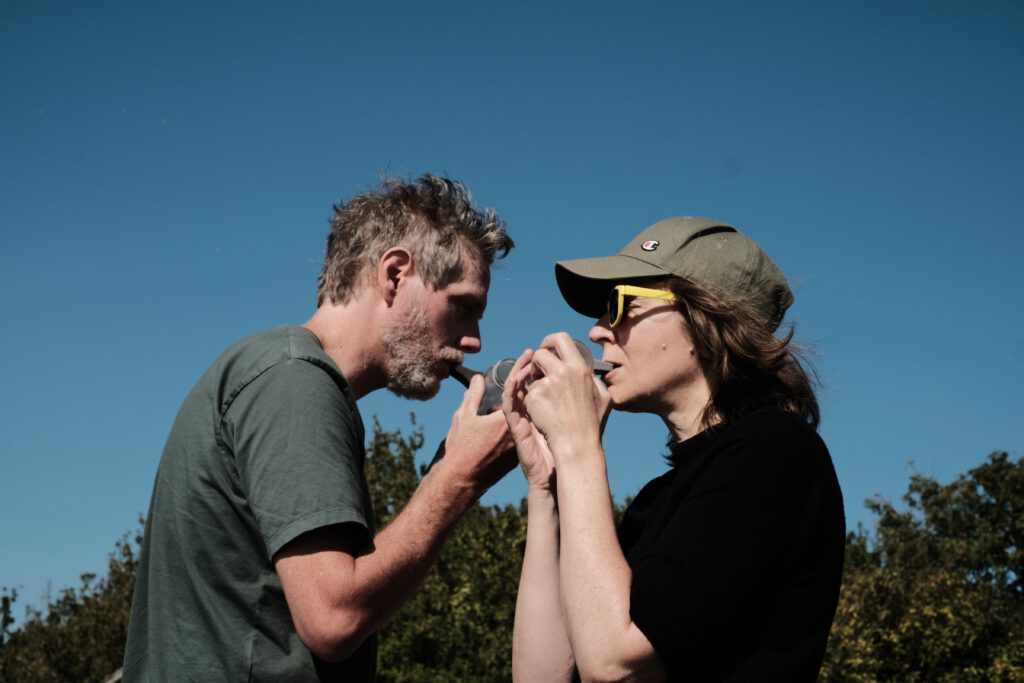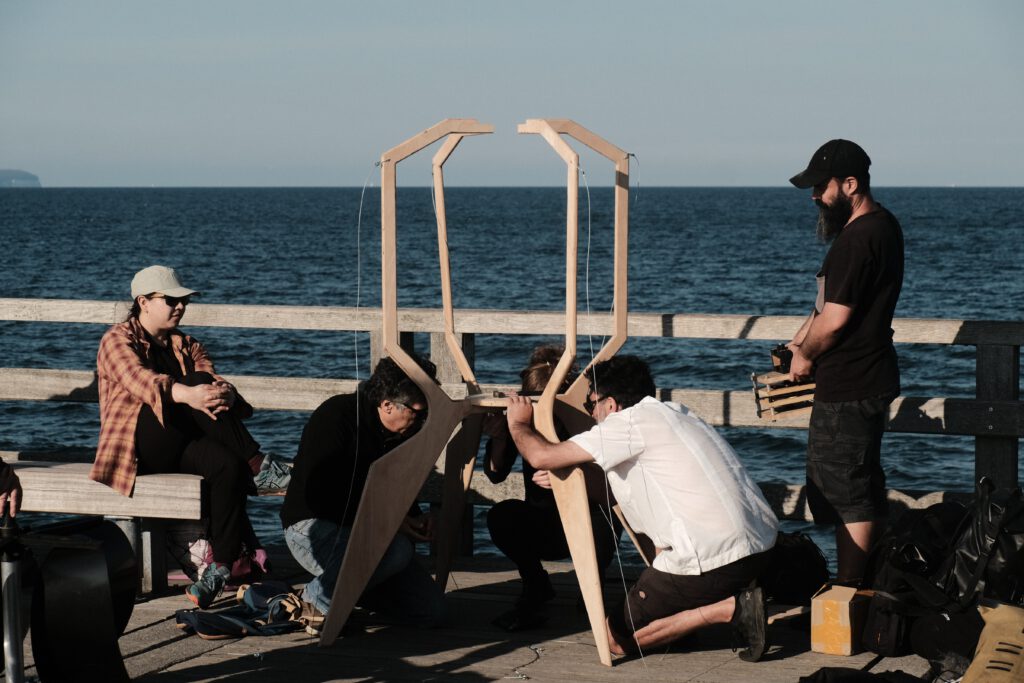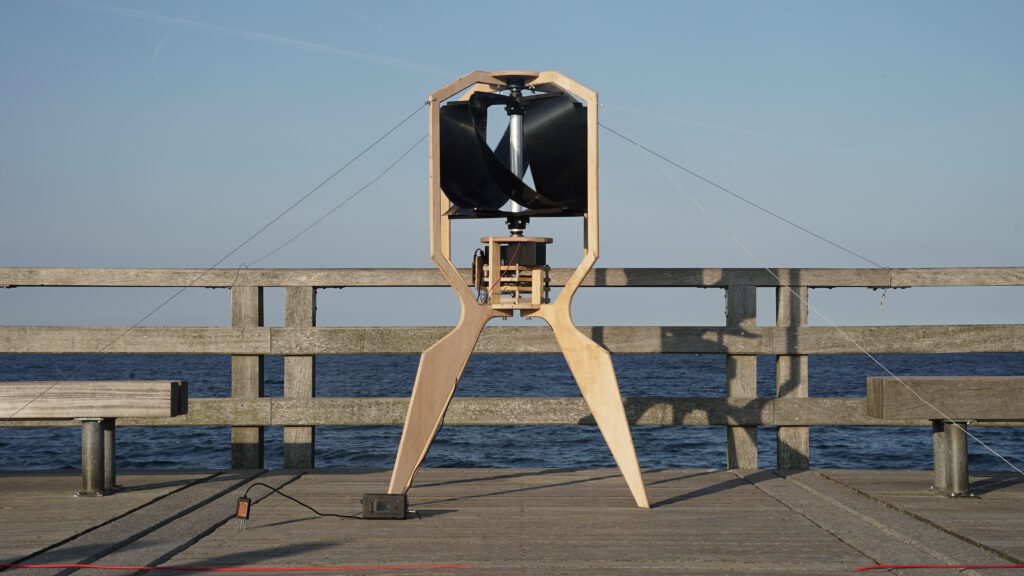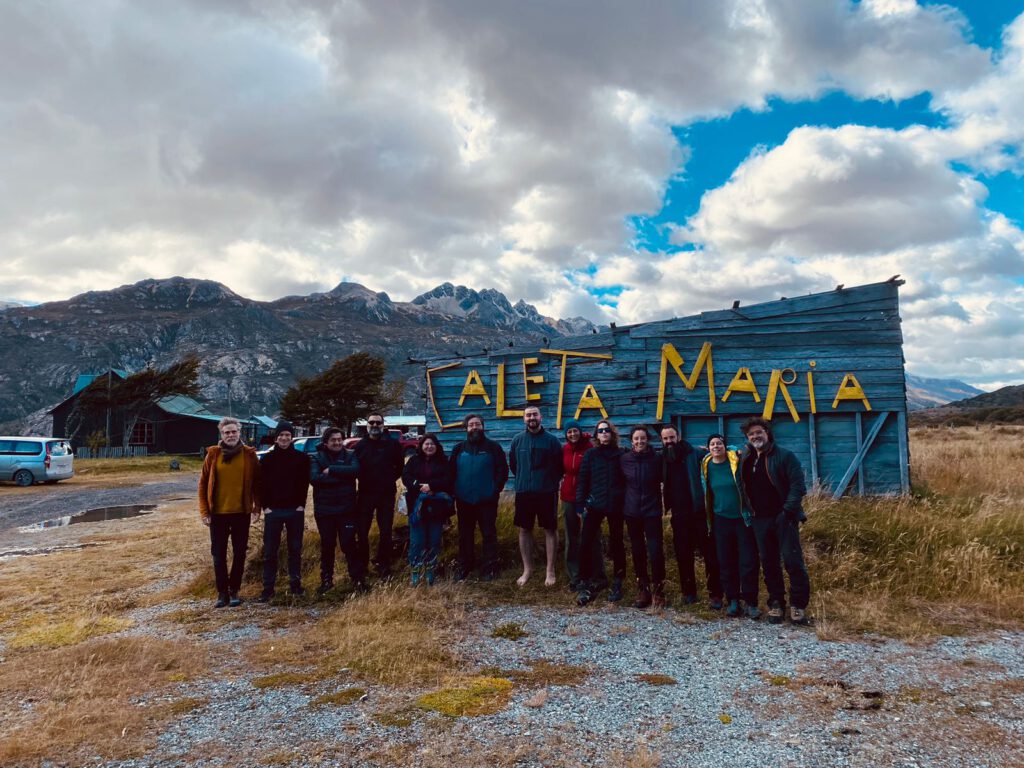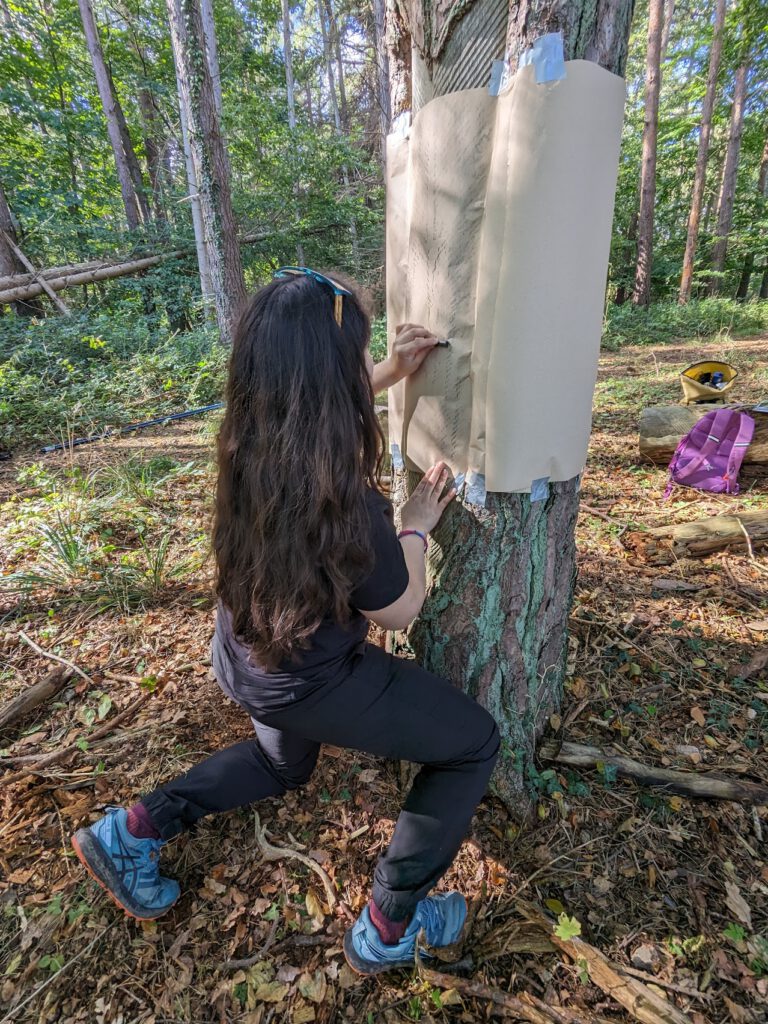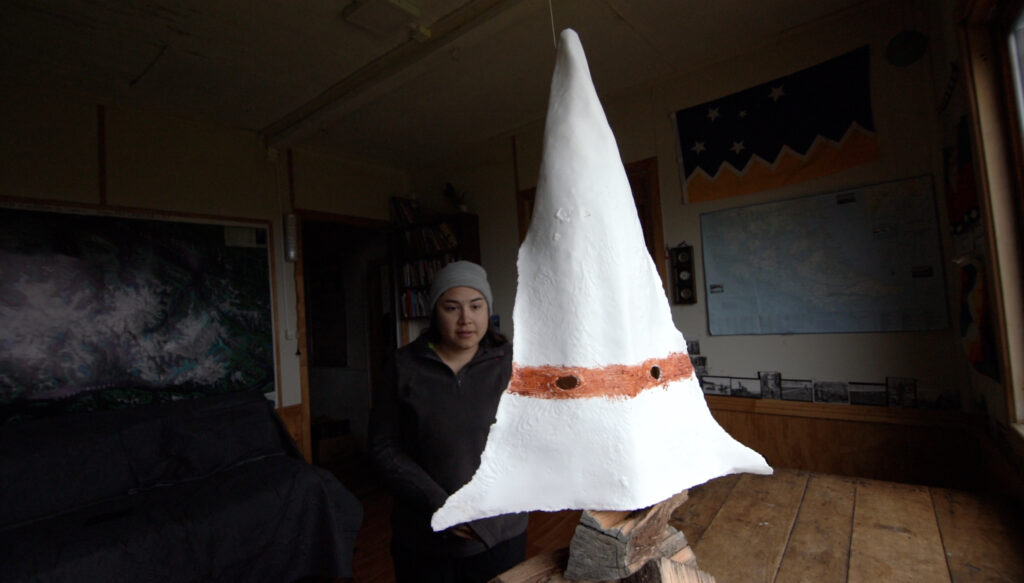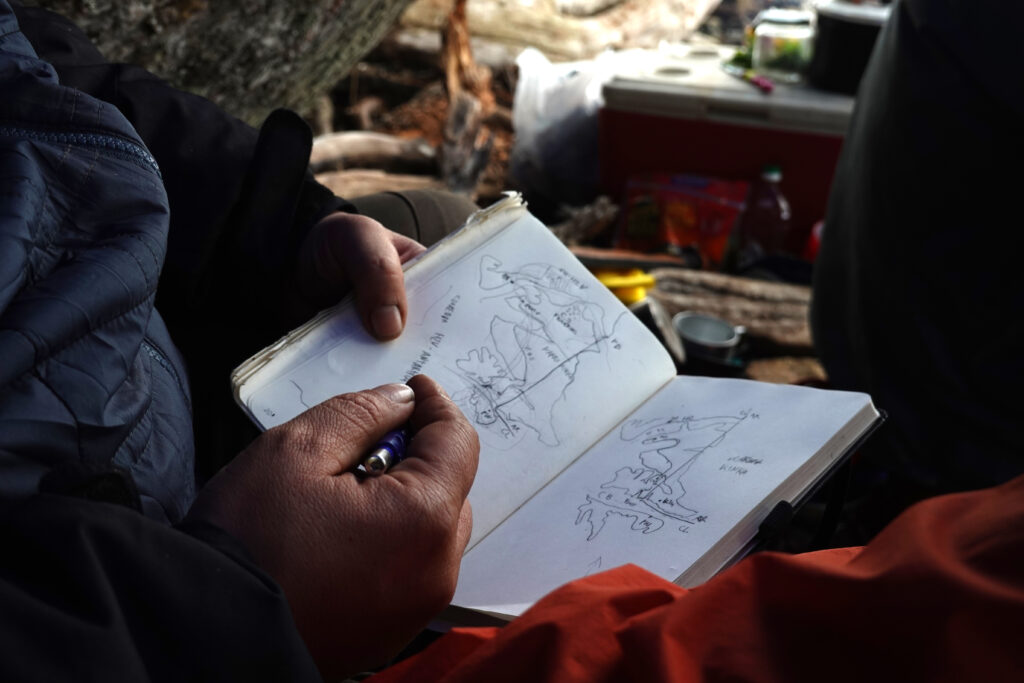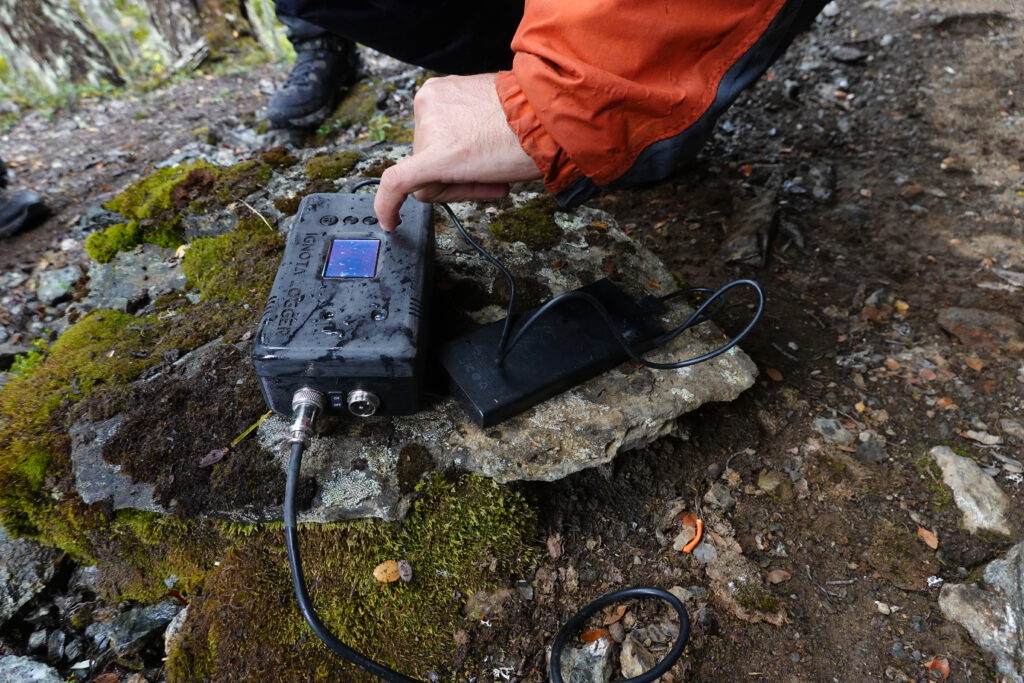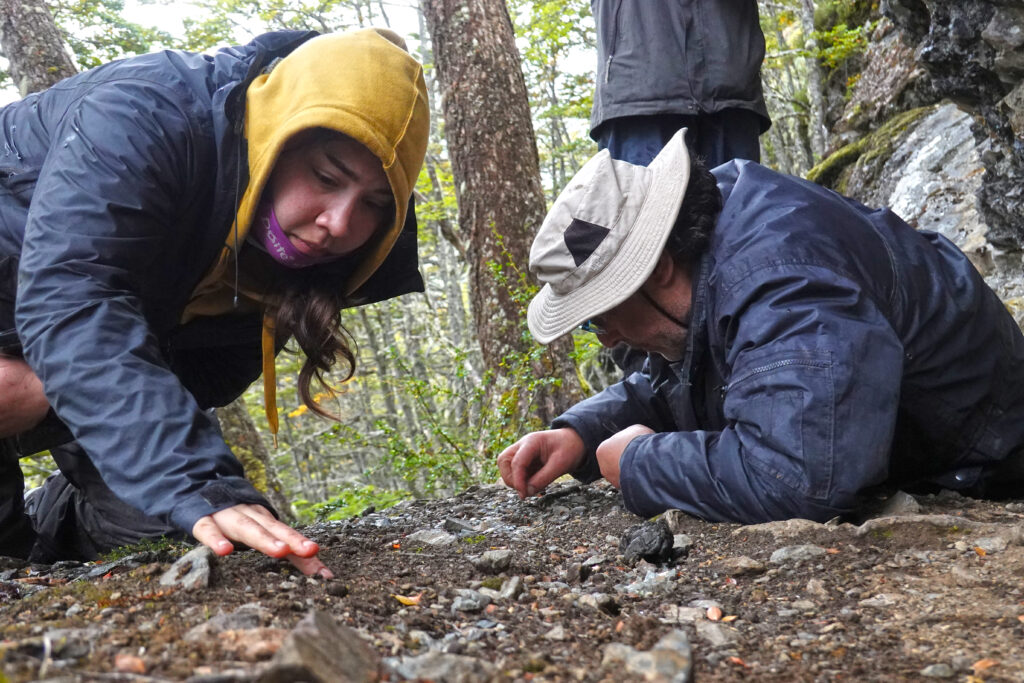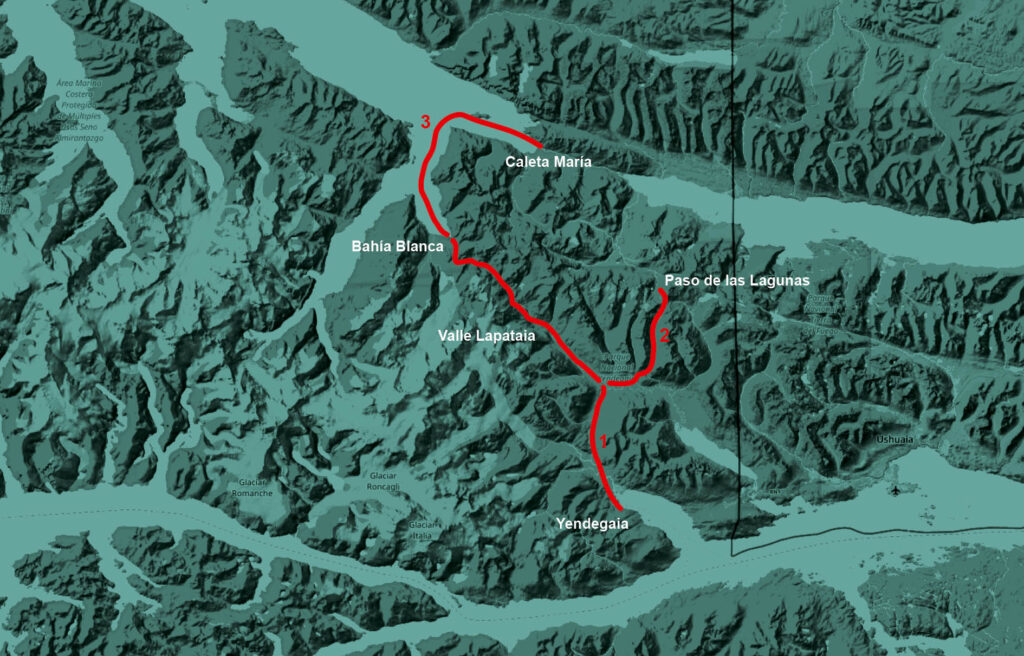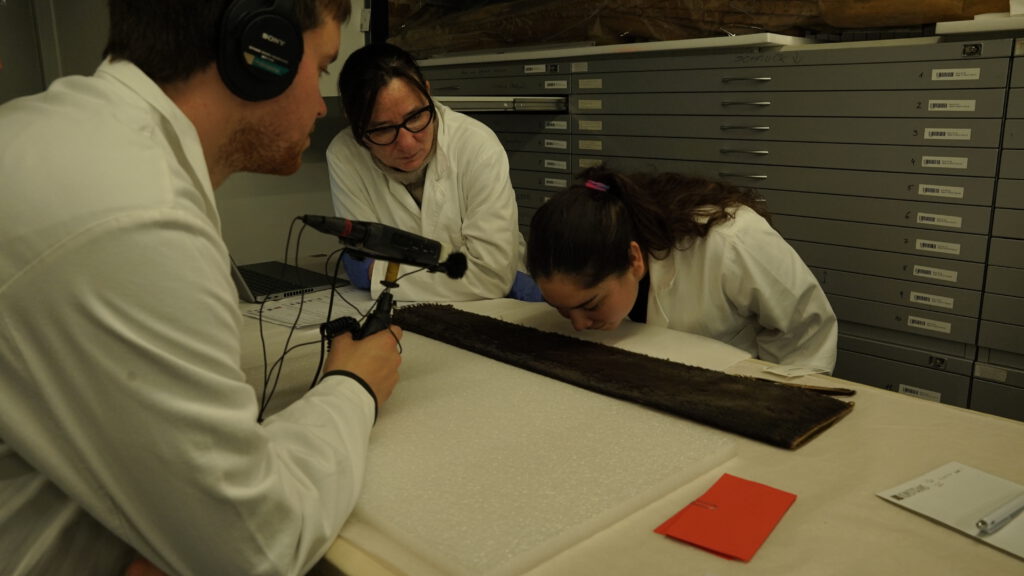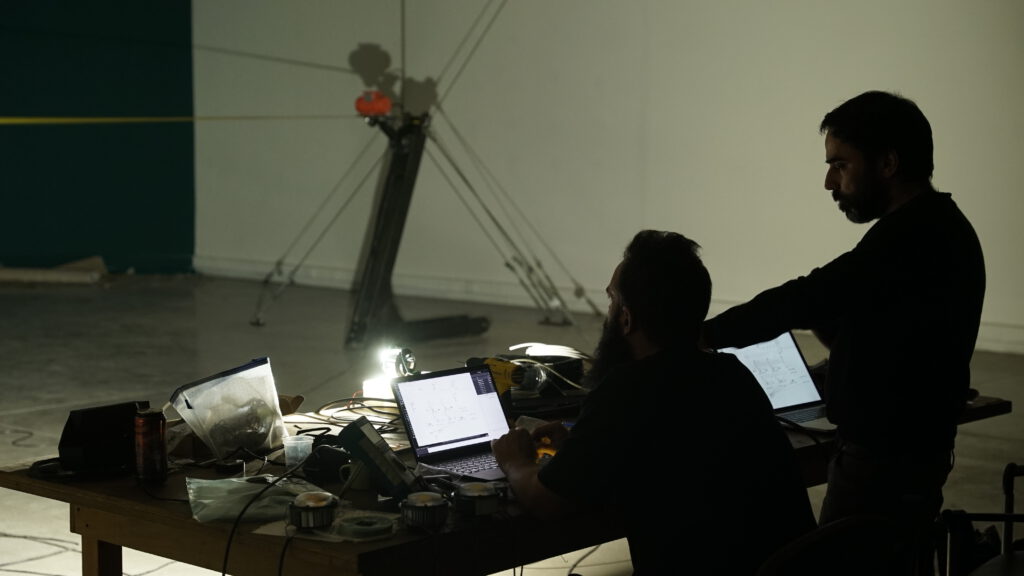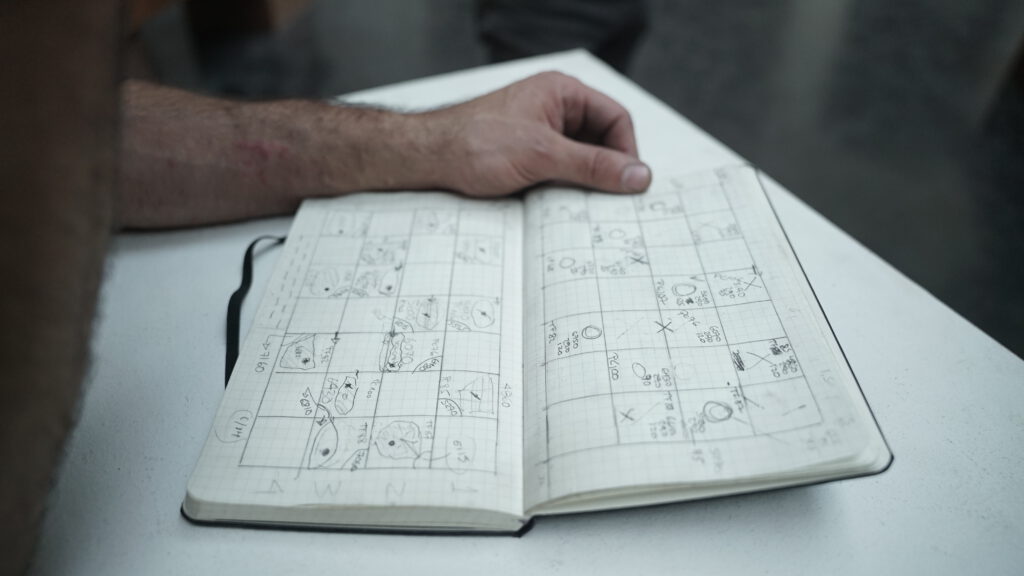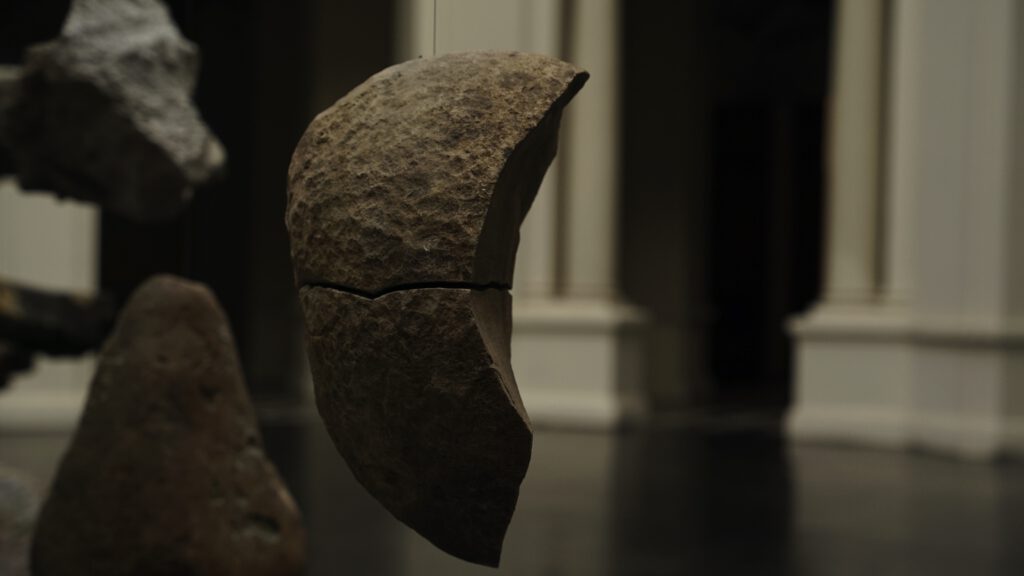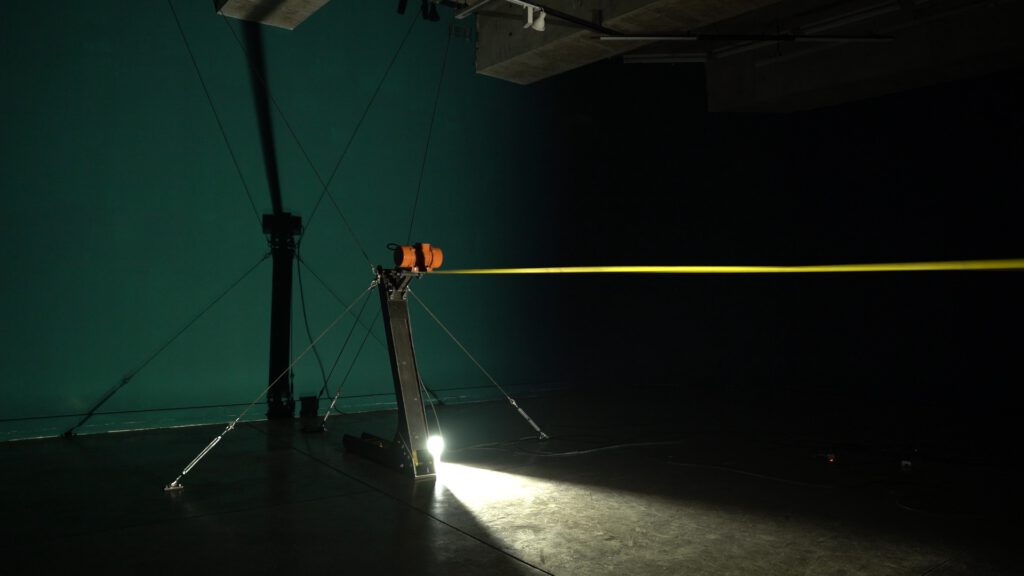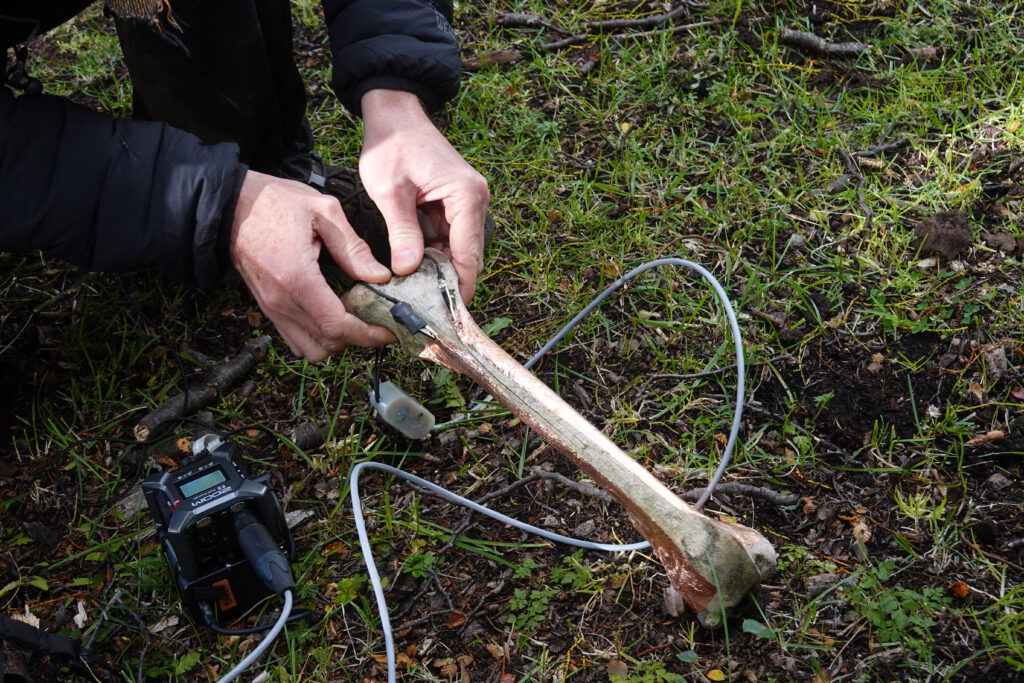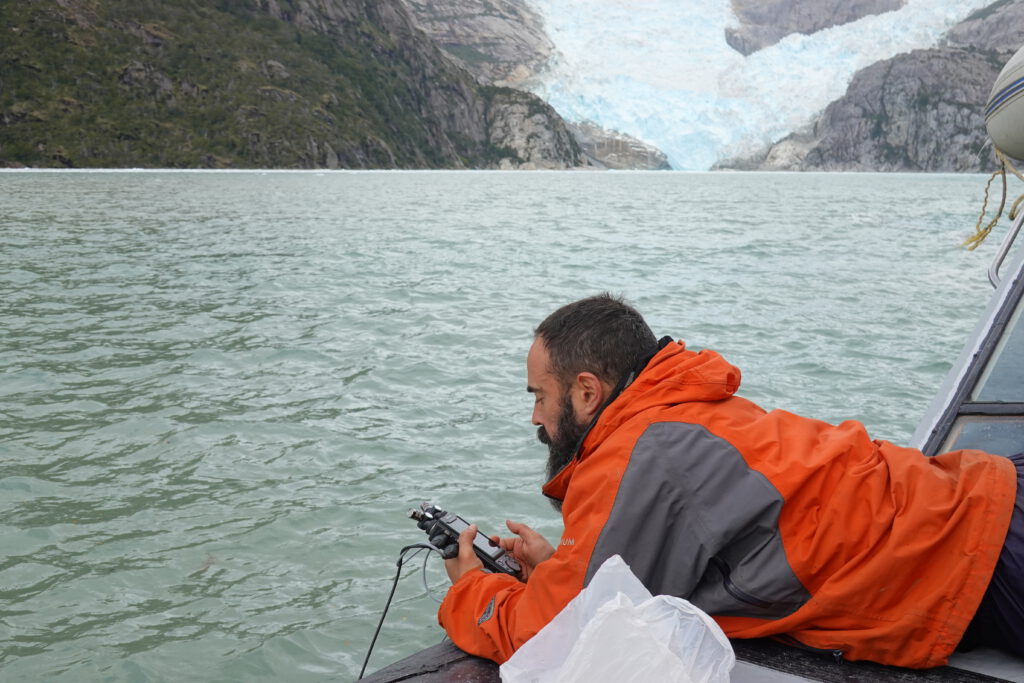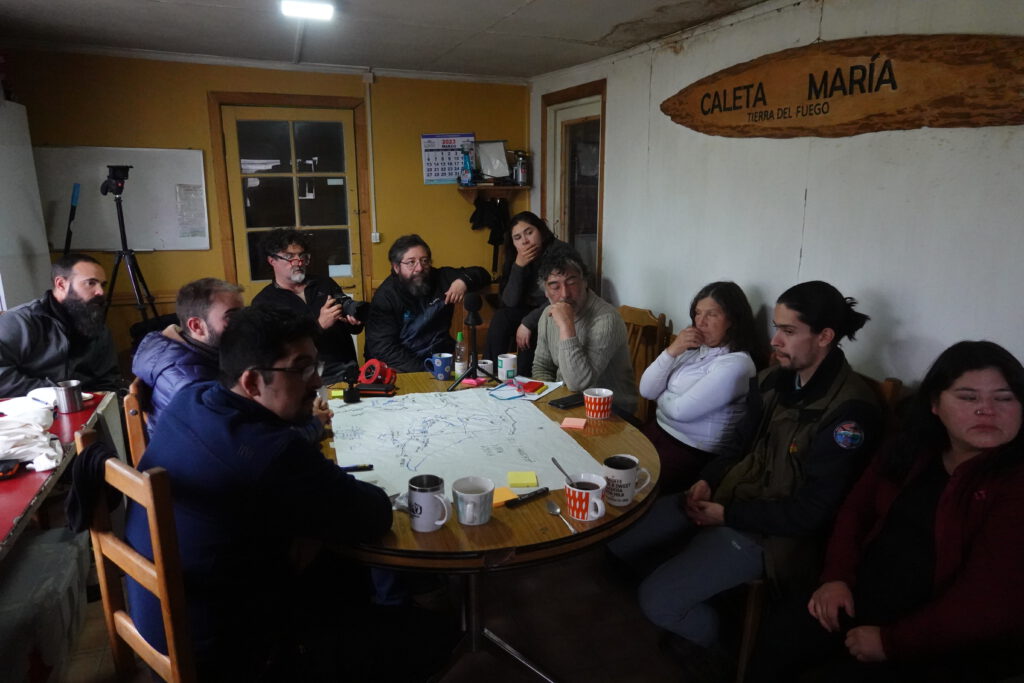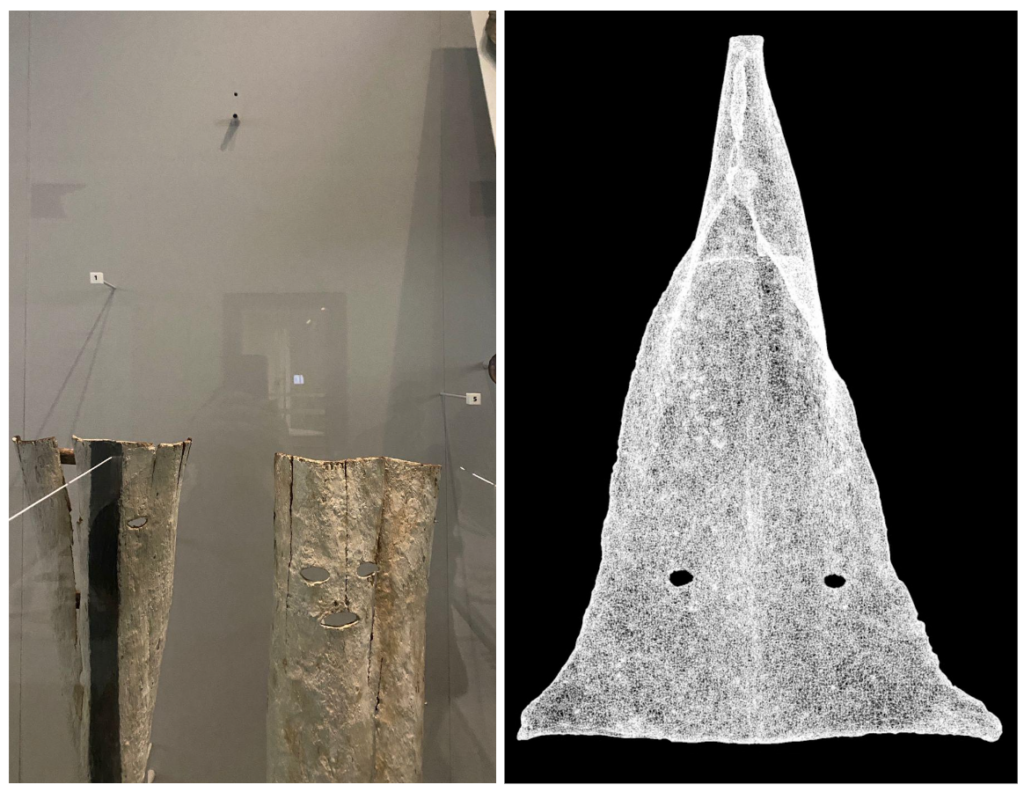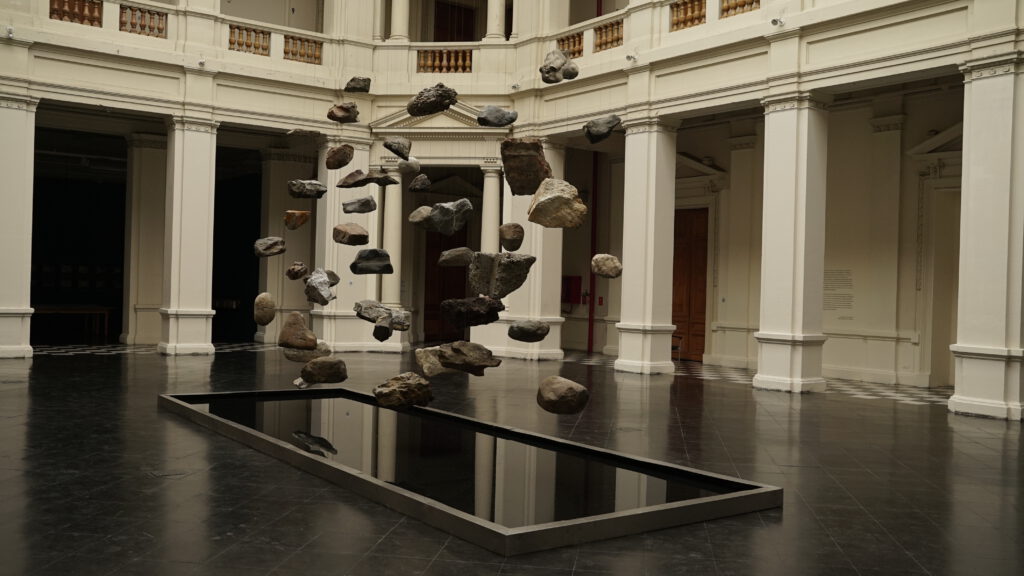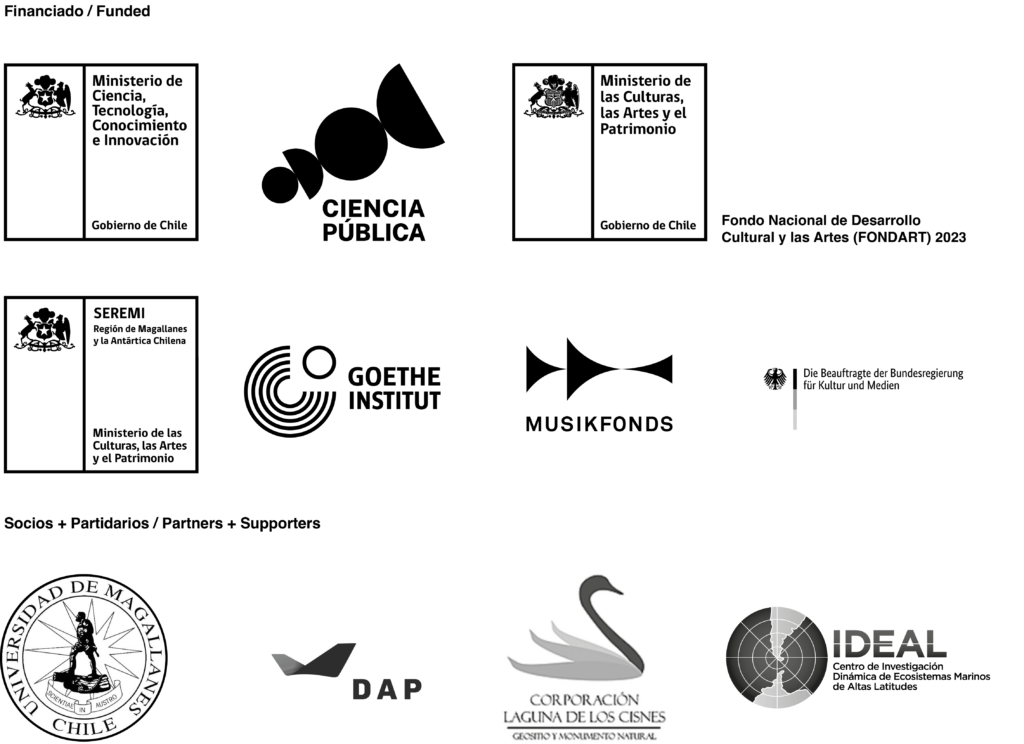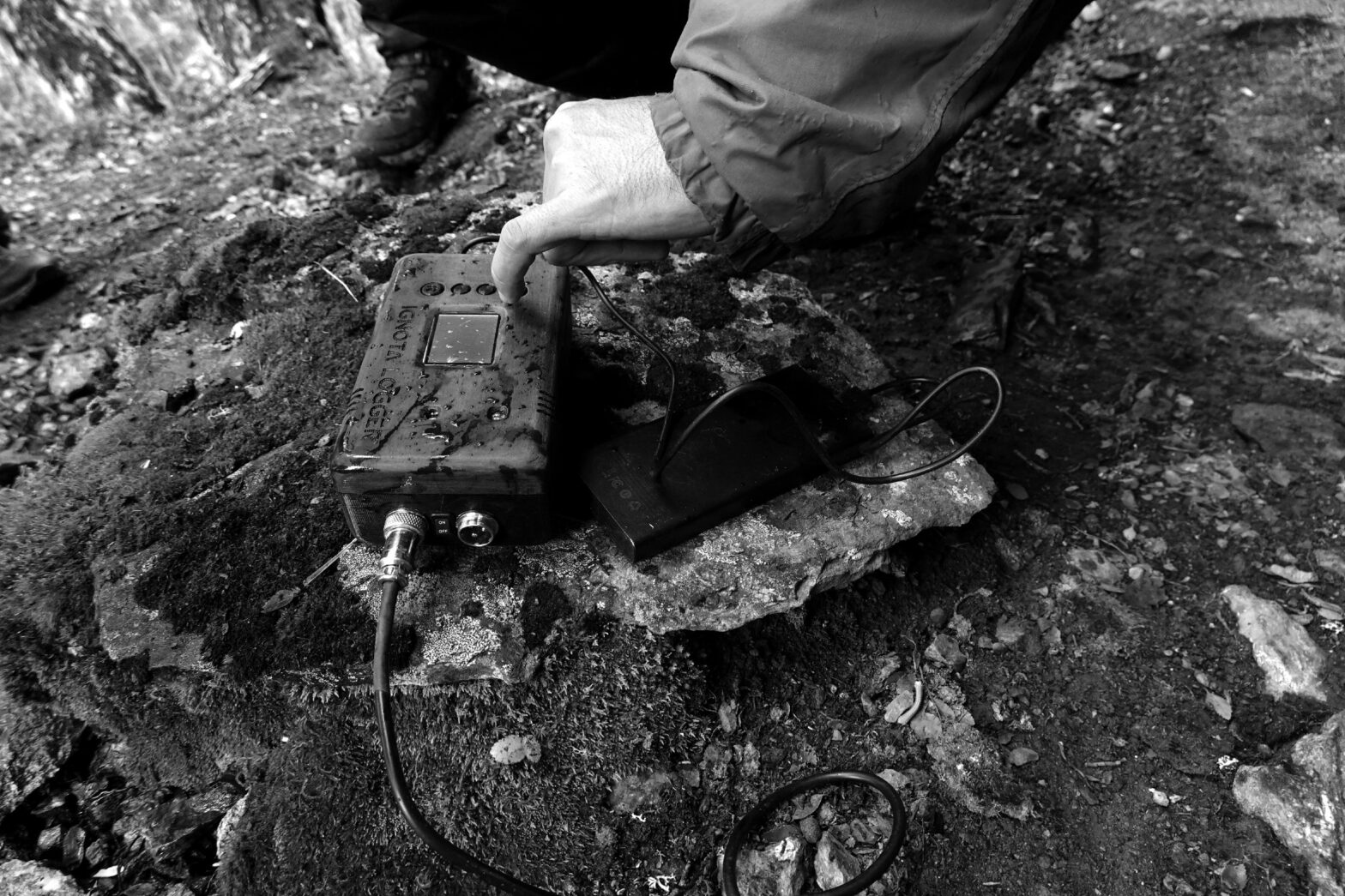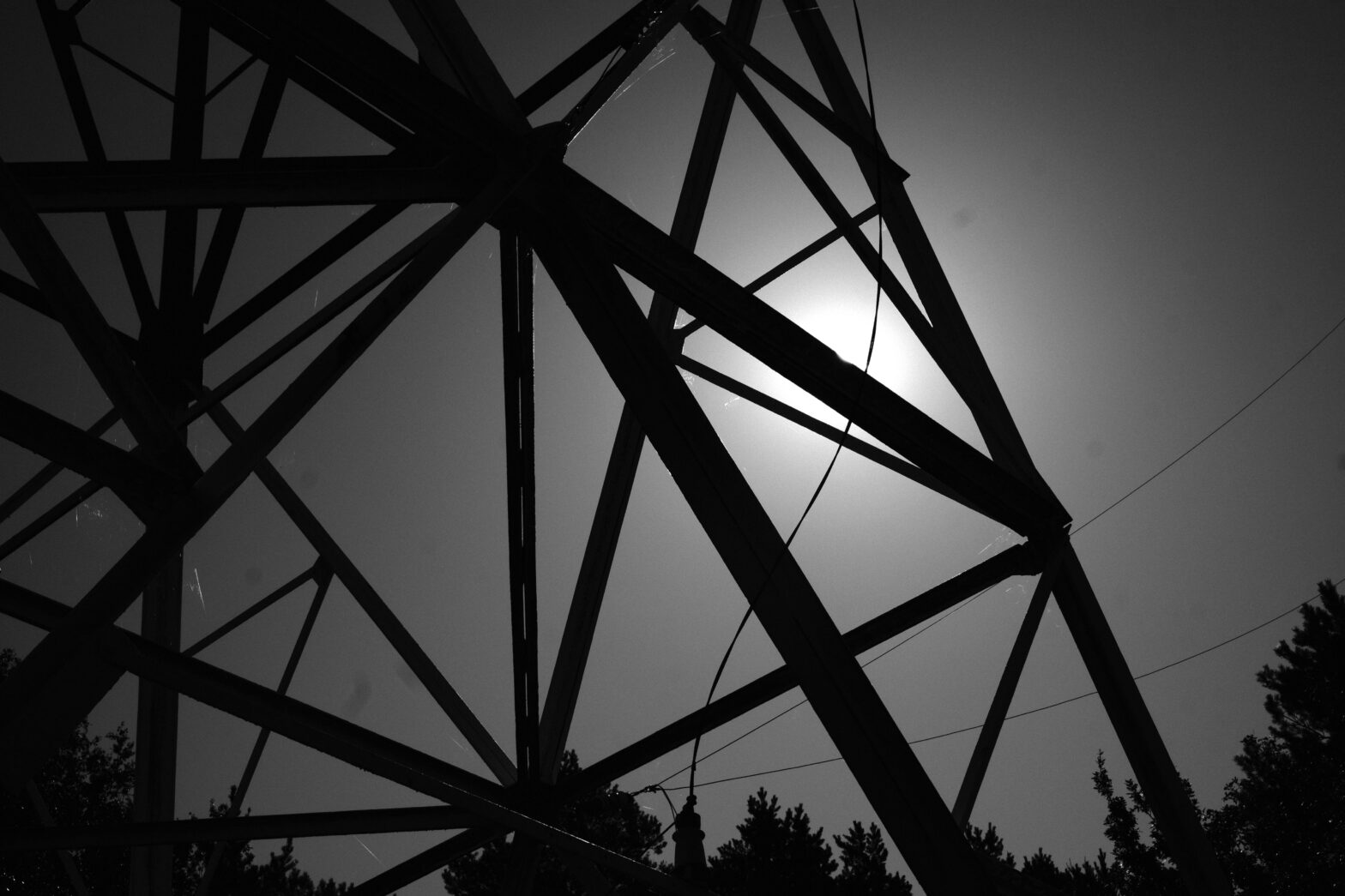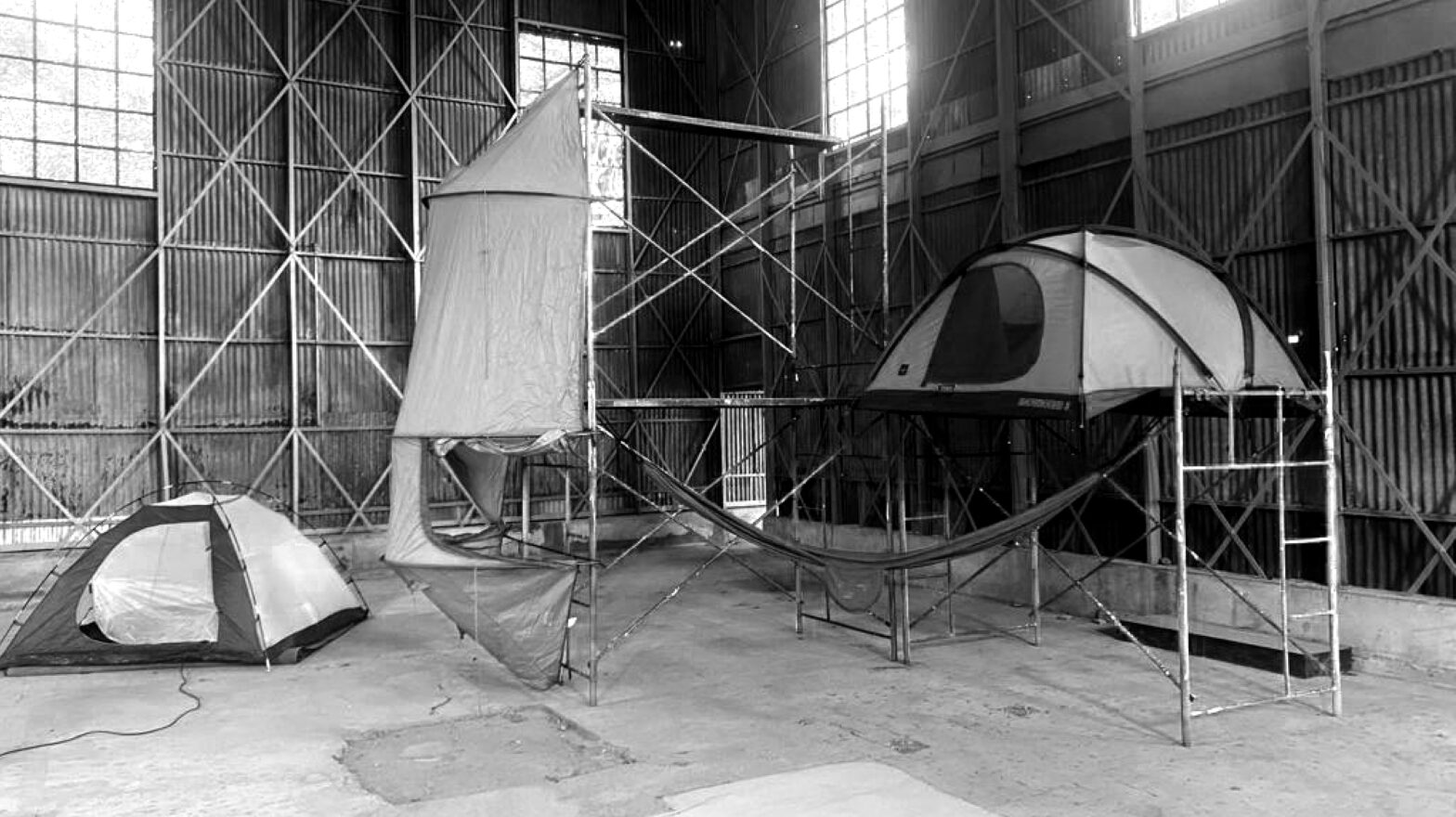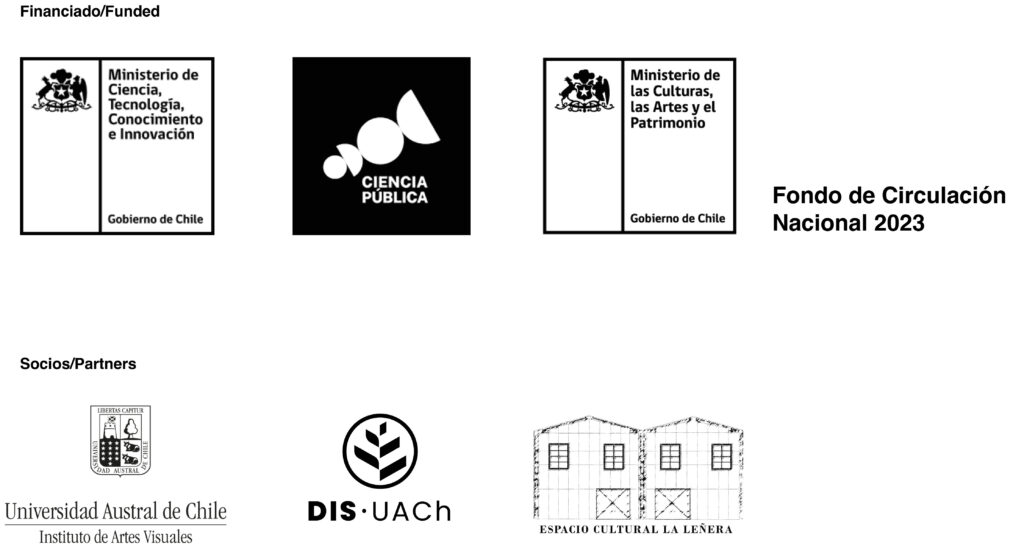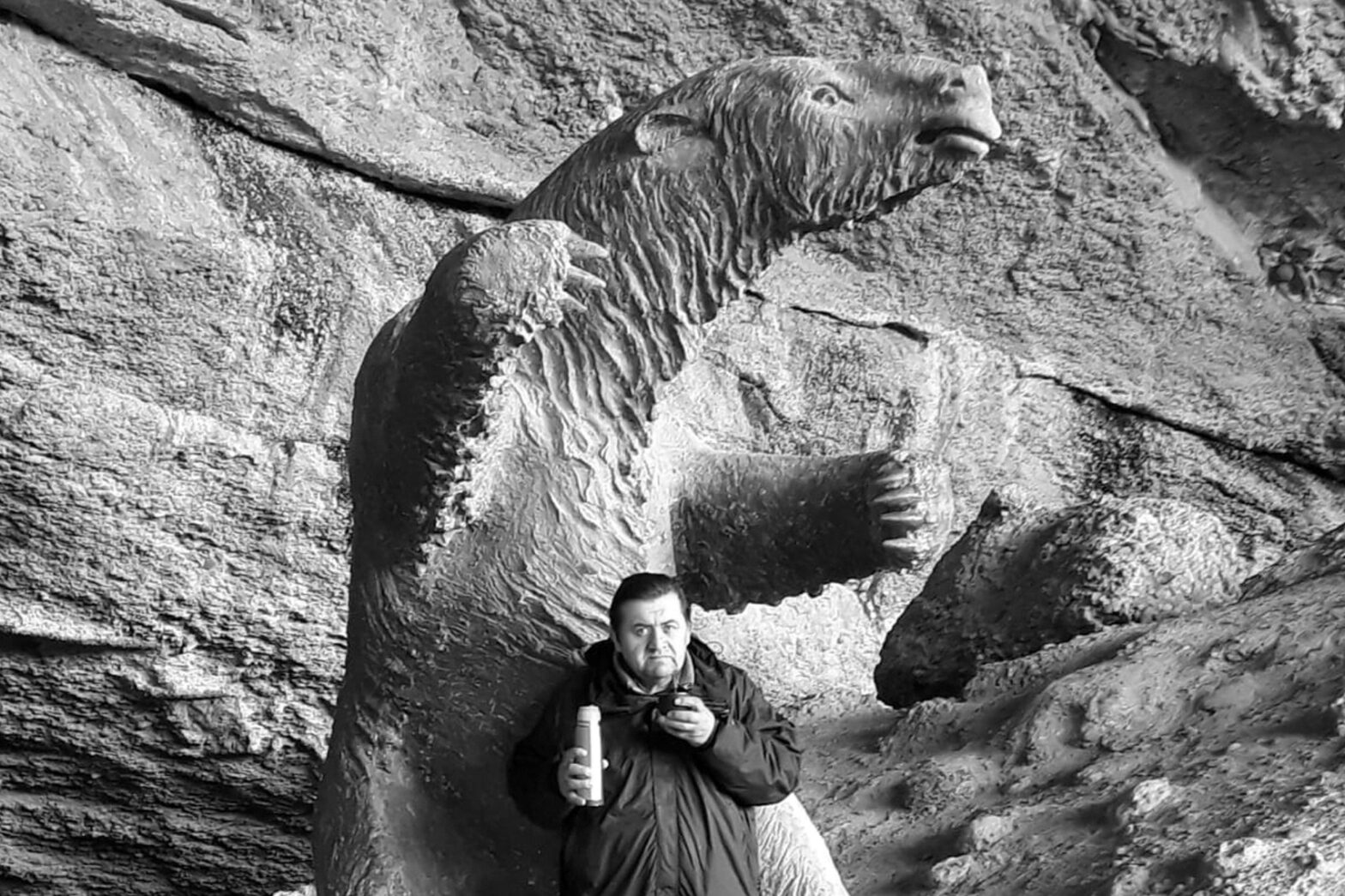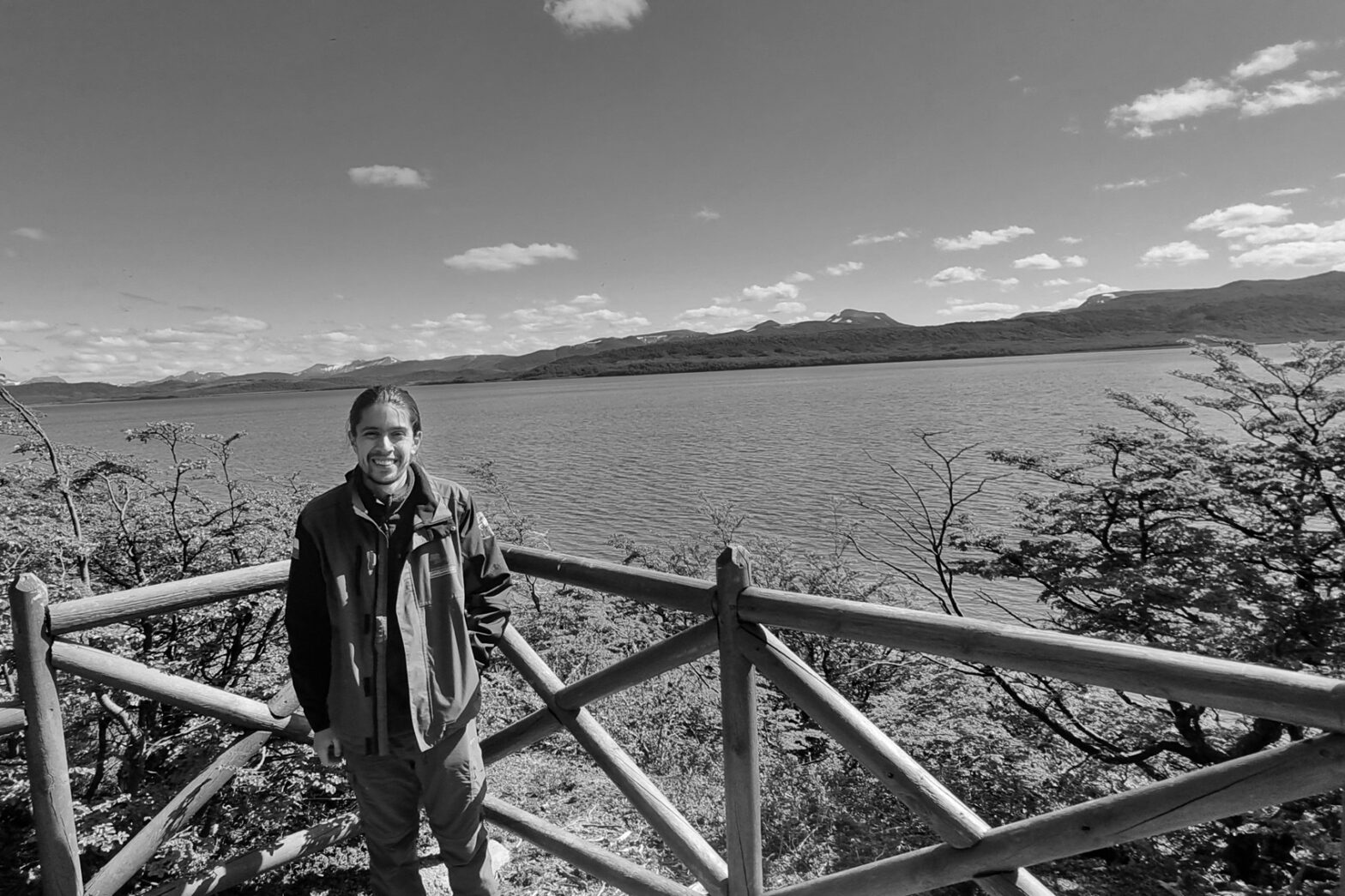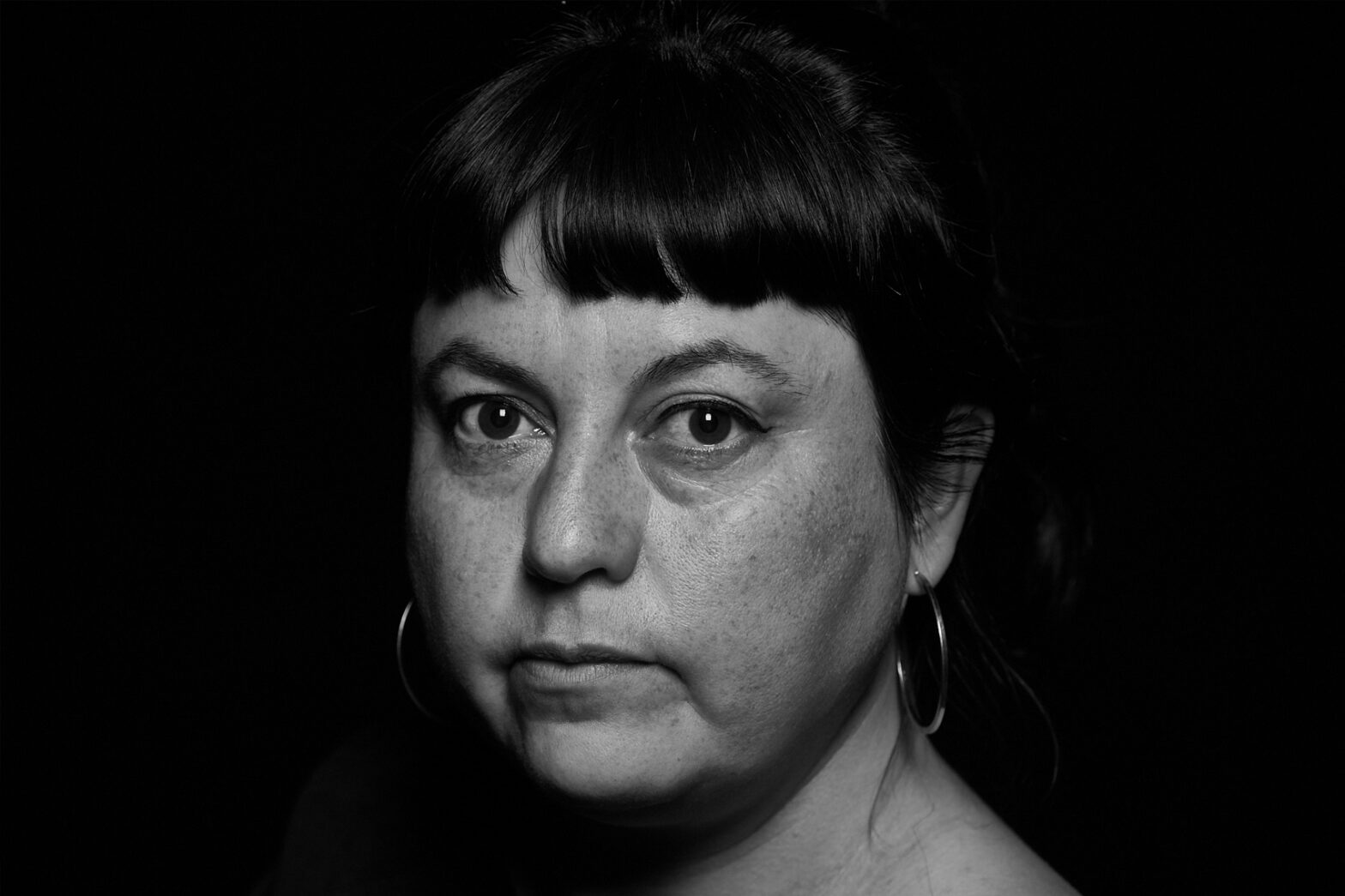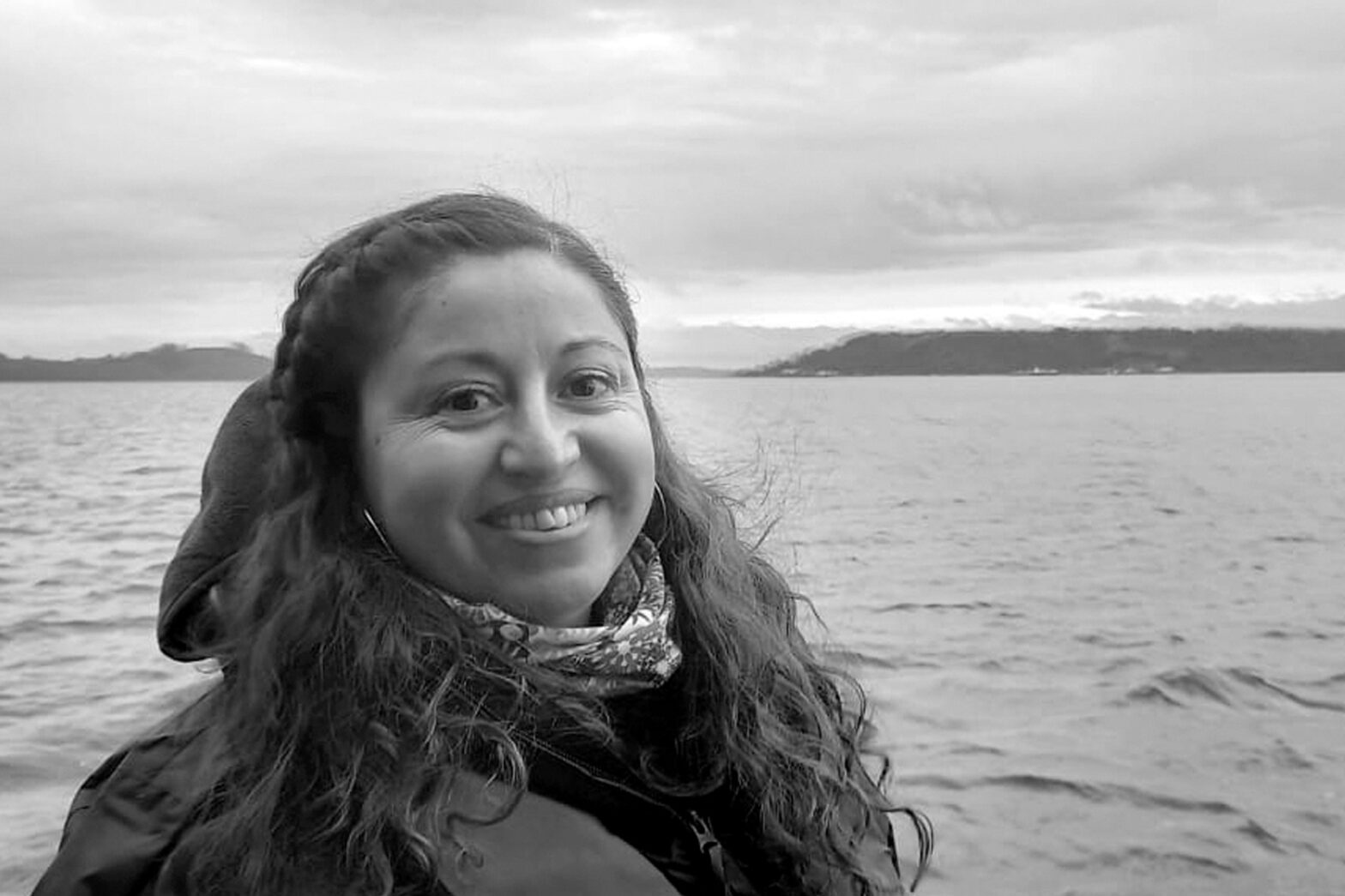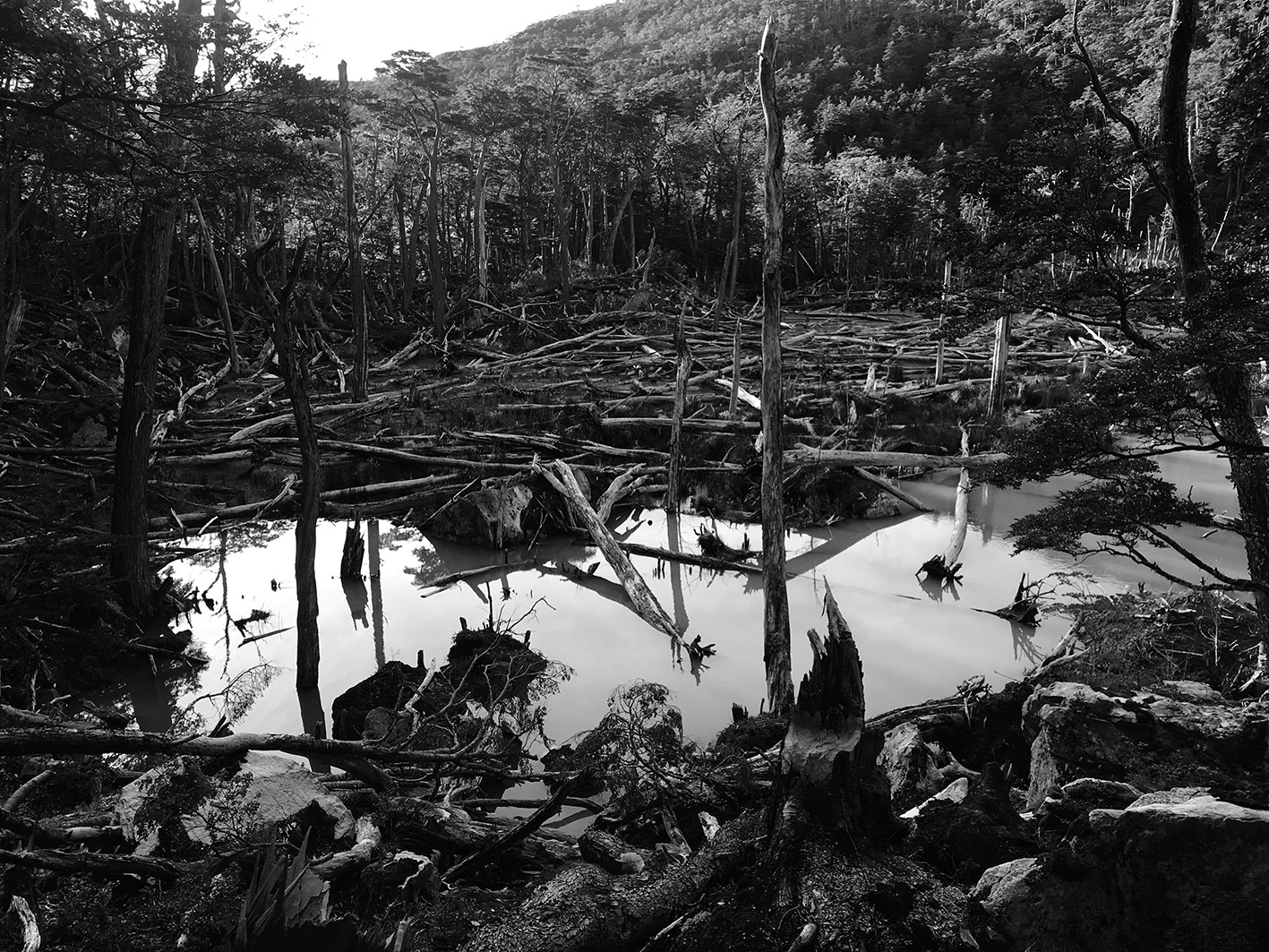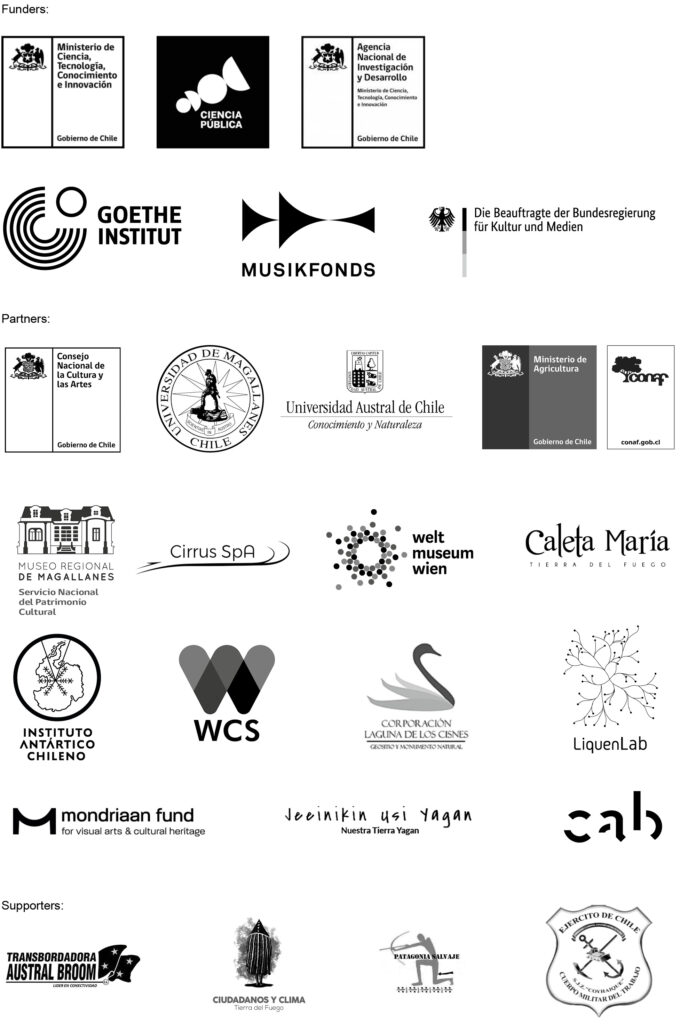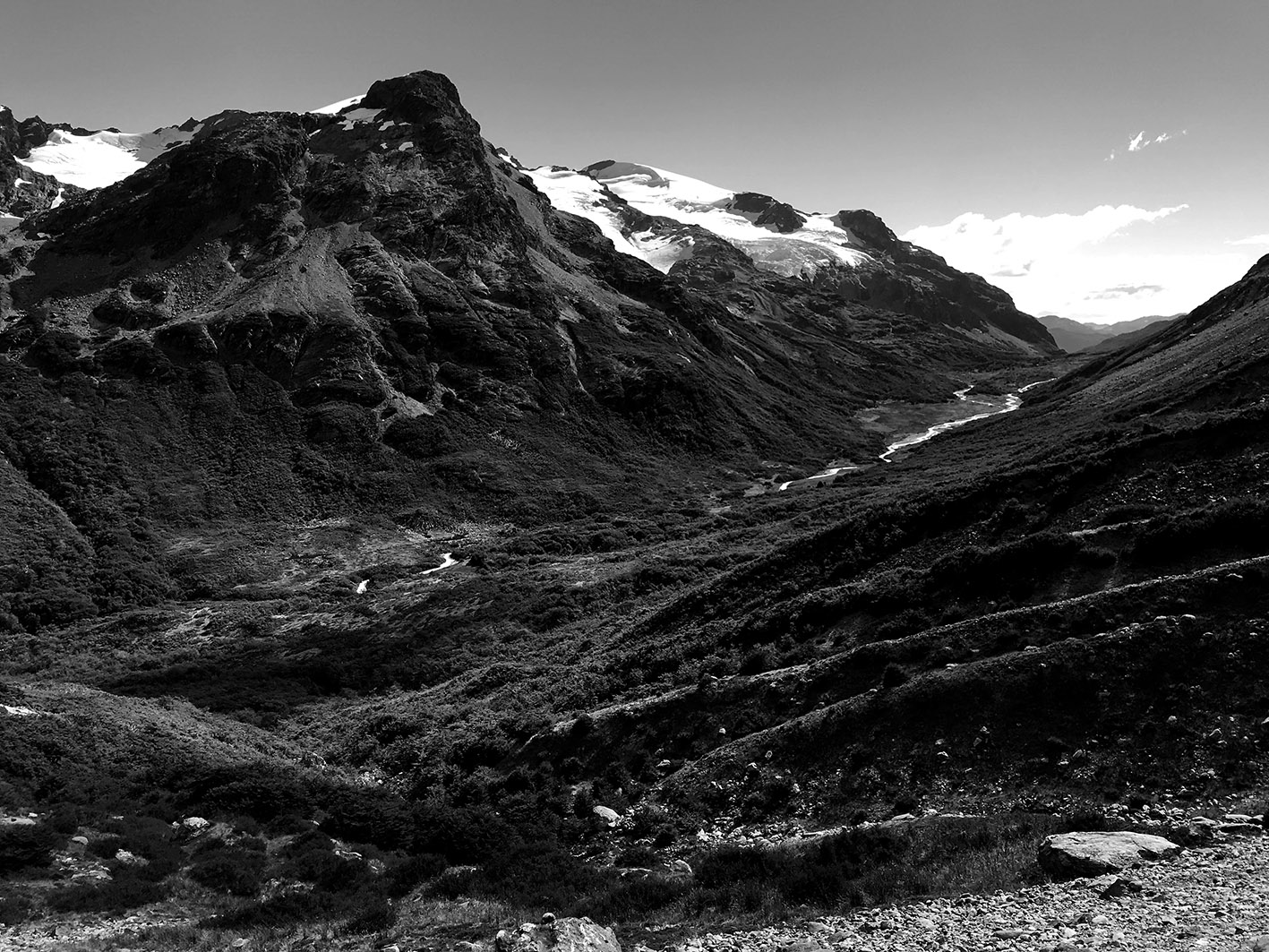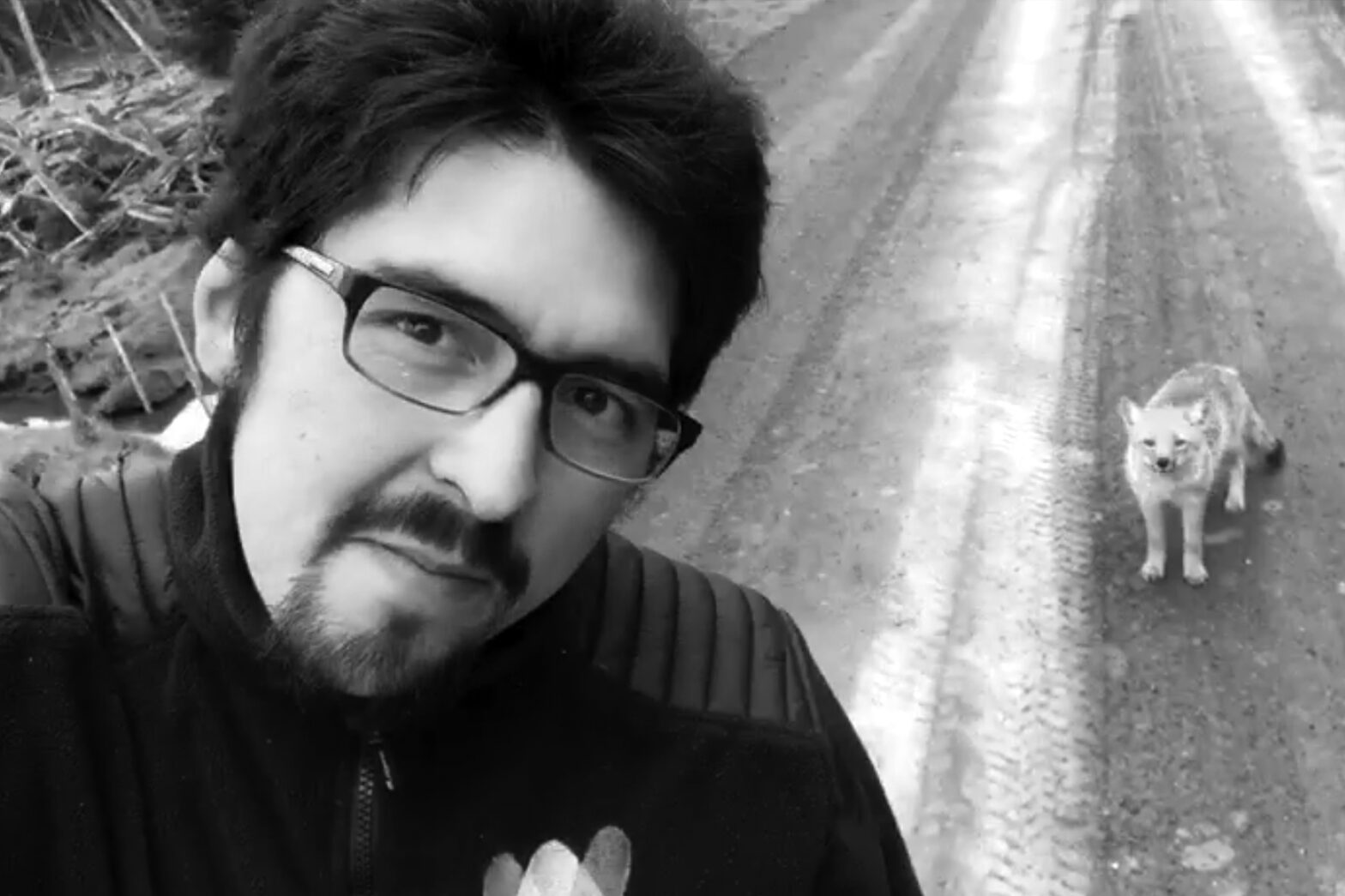> projects / 2024 / contact zones / conference / exhibition / participants
Terra Ignota Forum 2024
Facultades de Ingeniería y Ciencias, Universidad de Magallanes
Manuel Bulnes 01855, Punta Arenas
Exhibition March 13 – June 13 (Opening, March 13 7 p.m.) (details >>>)
Forum March 13 – 15 (program details >>>)
Terra Ignota Forum (TIF) proposes a multidimensional approach developed around the discovery of the Zone of Intercultural Contact (ZCI) in 2021 in Yendegaia National Park by the Terra Ignota team. This discovery confirmed the existence of a passage between the Beagle Channel (Yendegaia Bay) and Almirantazgo Sound (Bahía Blanca) through the Darwin Range, a point of contact between three ancestral ethnic groups that used to pass through this area: Selk’nam, Kawésqar and Yagán.
With the support of the Ministry of Cultures, Arts and Heritage, the Ministry of Science, Technology, Knowledge and Innovation, the Goethe-Institut International Co-Production Fund and others, TIF is a field laboratory that seeks to develop and implement a contemporary archive on the so-called “intercultural contact zone”. With an interdisciplinary methodology strongly rooted in the site, the team of artists, scientists, curators, producers and members of the local Chilean and international communities studies the relationships between culture, nature, knowledge and their different forms of representation. Rather than considering heritage as a static commodity to be archived in museums, TIF emphasises its preservation through creative actions and lasting, dynamic engagement.
After collaborations with institutions such as the Ethnological Museum Vienna (Weltmuseum Wien) and the Museum of Contemporary Art Santiago (MAC), the first TIF field lab and forum in Yendegaia National Park in March 2023, the geographical mirrored experience with the field lab in Northern Germany (Rügen, September 2023) and the knowledge transfer and training programme at La Leñera Cultural Centre in Valdivia (December 2023), the different lines of activities – which include fieldwork, research, artistic production, mediation and education – now converge in the Terra Ignota Forum hosted by the Universidad de Magallanes in Punta Arenas.
In a dynamic format that mixes exhibitions, workshops, presentations, concerts, talks, broadcast on radio and television, the research and results of the project will be presented, inviting critical examination of a place in transformation. The centrepiece of the exhibition, a vast field of stones from the region, serves as our map and orientation through facts and findings, tales and stories, thoughts and speculations.
With contributions from:
Aladino del Carmen Salas faciliator Alberto García archaeologist Alberto Harambour historian Alessandra Burotto journalist Alfredo Prieto archaeologist Adrian Silva anthropologist Angélica Castelló artist Aymara Zegers artist Catalina Montero art historian Carsten Stabenow curator Christian Oyarzún programmer Claudia Augustat anthropologist Claudia Gonzalez activist Yagán Community Consuelo Spencer psychoanalyst Cristian Espinoza artist, architect Daniela Gimenez producer Daniel Tirado programmer Diego Ahumada restorer Diego Cortés sculptor, editor Elcira Hernández Walton activista Yagán Erika López Marine marine biologist Katty López Soto producer Eric Mattson curator Federico Stäger geologist, writer Fernanda Olivares activist Selk’nam community Florencia Curci artist Francisca Gabler journalist Gerd Sielfeld geologist Garret Linn-Benítez, technical advisor Hema’ny Molina, poet and activist Selk’nam community Hernán Gómez legal advisor Ignacio del Real illustrator Inti Gallardo producer Ivan Flores Philosopher Jacqueline Puratich geologist Jaime Mora engineer Jan Vormann artist Jasmine Guffond artist Joaquín Almonacid anthropologist Joali Paredes volcanologist Jorge Gibbons zoologist José Luis Marchante historian, economist Juan Pablo Cellanes programmer Juan Carlos Solari audiovisual director Juan Pablo Letelier geologist Julio Contreras doctor Julia González activist Yagán community Kerstin Ergenzinger artist Leyla Cárdenas marine biologist Lilian Riquelme producer Luciano Lavín welder Luis González gastronomic researcher Maan D’hamers marine biologist Marc Asensi engineer Marcelo Peña sound engineer María Jesus Roman artist Mario Campos animation artist Marisol Palma historian María Luisa Murillo photographer Mauricio Massone archeologist Micol Favini designer Miguel Ángel Escalonilla engineer Miguel Cáceres artist Mirko Petrovic artist, programmer Nicolás Spencer artist Osvaldo Sotomayor architect Pablo Schalscha artist Paola Grendi anthropologist Paul Gründorfer artist Paula Urdangarin lawyer Raviv Ganchrow artist René Rissland architect Roberto Carracedo archaeologist Rodrigo Munzenmayer park ranger Sara Demartini marine biologist Thierry Dupradou photographer Tomás Elgueta luthier Sergio Contreras engineer Valentina Montero curator Víctor Mazón Gardoqui artist Viviana Méndez poet
